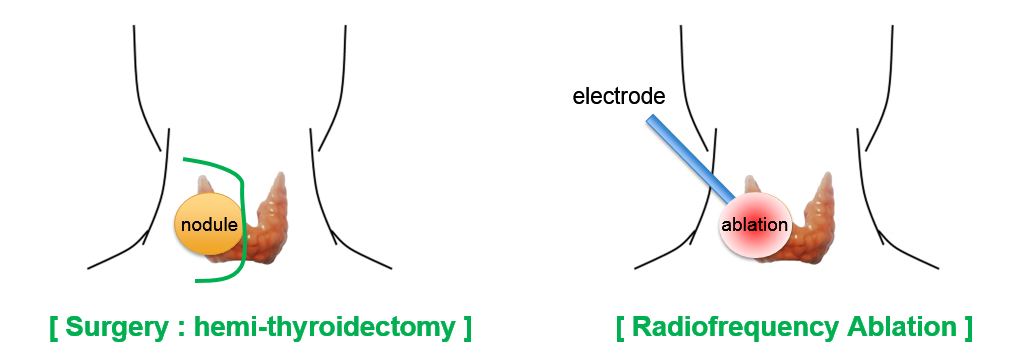The thyroid is a small, butterfly-shaped gland located in the front of your neck. Despite its size, it plays a key role in regulating your body’s metabolism, energy production, and hormone balance. When issues arise with the thyroid, such as the development of benign nodules, it can lead to various symptoms or simply impact your quality of life. One treatment option gaining popularity is thyroid radiofrequency ablation (RFA). Here’s information on thyroid RFA, what to expect from the procedure, and how to prepare for it:
What Is Thyroid Radiofrequency Ablation?
Thyroid radiofrequency ablation is a minimally invasive treatment used to reduce the size of benign thyroid nodules. Using radiofrequency waves, this procedure targets and eliminates problematic nodular tissue without the need for surgery. Unlike more invasive treatments, RFA leaves the surrounding healthy thyroid tissue intact, allowing the gland to continue functioning normally. This method is an excellent option for patients seeking relief from discomfort or cosmetic concerns caused by thyroid nodules while avoiding surgery and preserving thyroid health.
What Can You Expect From This Procedure?
During the RFA procedure, a specially trained medical professional will use ultrasound guidance to insert a thin probe into the thyroid nodule. The probe emits radiofrequency waves, which heat and destroy the targeted nodular tissue. The procedure typically takes 30 minutes to one hour and is performed under local anesthesia. Most patients report only mild discomfort during the process. There is no need for a hospital stay, and recovery is swift, with most individuals resuming normal activities within a few days.
How Can You Prepare for a Thyroid RFA Procedure?
Thyroid RFA is ideal for individuals with benign thyroid nodules confirmed through diagnostic tests like ultrasounds and biopsies. Candidates are often those experiencing symptoms such as a visible neck lump, difficulty swallowing, or discomfort due to nodule size. This procedure is a key option for patients looking for a non-surgical approach to managing benign thyroid nodules. It’s not suitable for those with thyroid cancer or other thyroid conditions requiring surgical intervention.
Proper preparation can help keep you comfortable during your RFA procedure and help you know what to plan for. Here are a few steps to follow for effective preparation:
- Schedule a Consultation: Speak with a thyroid specialist to discuss your medical history, symptoms, and diagnostic results. They will confirm if you are a good candidate for RFA.
- Complete Necessary Tests: You may need to undergo additional tests like a fine-needle aspiration biopsy or thyroid function tests.
- Discuss Medications: Inform your doctor about any medications or supplements you are taking. They may recommend adjustments before the procedure.
- Plan Your Day: Since RFA is an outpatient procedure, make arrangements for someone to drive you home afterward. Wear comfortable, loose-fitting clothing.
- Follow Pre-Procedure Instructions: Your medical provider will give you specific instructions, such as fasting for a few hours before the procedure. Be sure to follow these guidelines for the best results.
Learn More About Thyroid Radiofrequency Ablation
Thyroid RFA is a safe, effective, and minimally invasive way to address benign nodules while preserving thyroid health. Whether you’ve been dealing with discomfort, visible nodules, or simply want to explore alternatives to surgery, RFA may be the key solution for you. Contact a specialist today if you’d like to learn more about thyroid radiofrequency ablation or determine if it is the right option.

